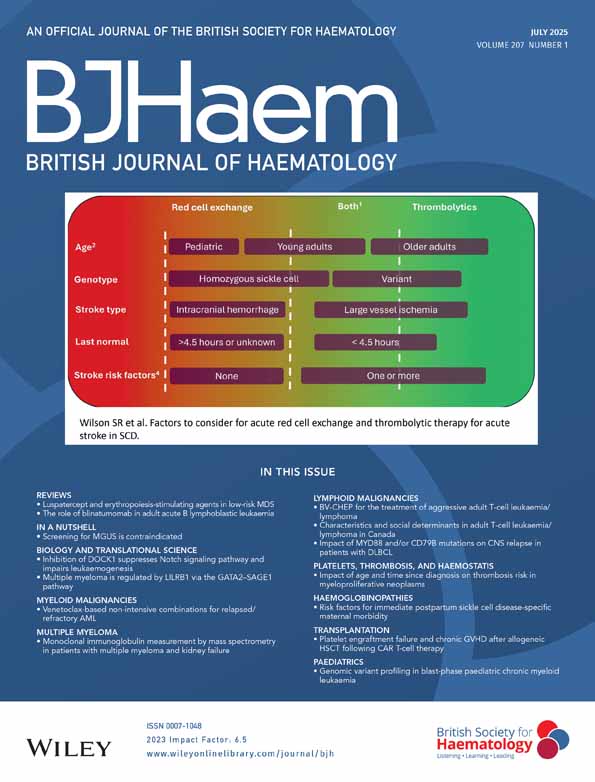A pilot study of monoclonal antibody targeted radiotherapy in the treatment of central nervous system leukaemia in children
Abstract
Summary. A pilot study was performed to investigate the toxicity, pharmacokinetics and therapeutic effect of intrathecally administered radiolabelled monoclonal antibody (MAb) in patients with meningeal acute lymphoblastic leukaemia (ALL). Six children aged 3–16, in second or subsequent central nervous system (CNS) relapse of ALL, received between 629 and 1480 MBq of131Iodine conjugated to either MAb HD37 (CD19, n= 2) or WCMH15.14 (CD10, n= 4). Conjugate was administered as a single injection either via an Ommaya reservoir (n= 4) or by lumbar puncture (n= 2). Acute toxicity was manifest by headache (n= 4), nausea and vomiting (n= 4) and pyrexia (n= 2). All acute symptoms resolved within 72 h. Transient myelosuppression occurred in three patients. Pharmacokinetic studies included investigation of whole body, blood and CSF clearance of isotope. 131I was seen to clear from the CSF by biexponential kinetics. Five patients responded to therapy. In four, the CSF became clear of blast cells at both 2 and 4 weeks following antibody injection, but evidence of relapse was seen at 6 weeks. The fifth patient, with blast cells present on a cytospin preparation, responded to therapy over an 8-week period but relapsed at 12 weeks. This study demonstrates the potential of targeted radiotherapy in CNS ALL, but further studies are necessary to increase the length of remission.




